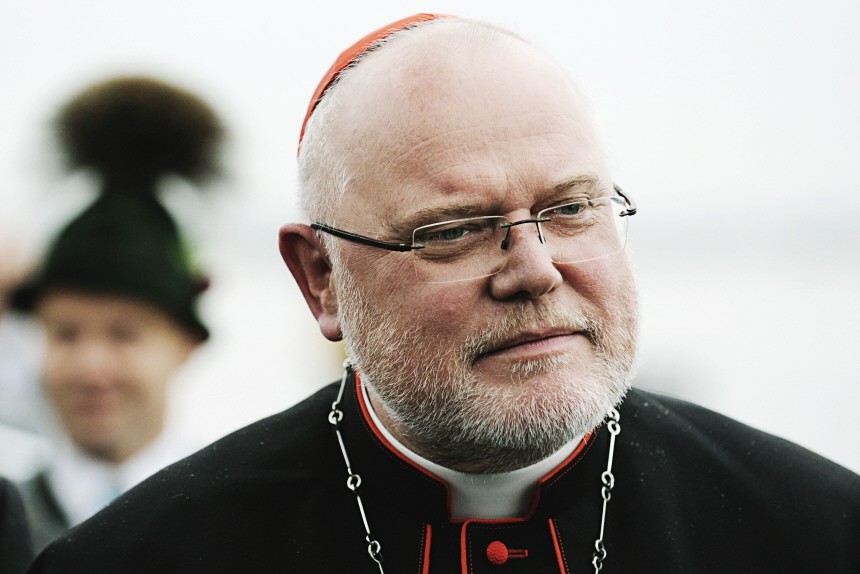Broadest interpretation of Amoris Laetitia by German Bishops
The Catholic bishops of Germany have declared that remarried divorcees can partake in the Church’s sacraments — including Holy Communion — if, after a long period of reflection, such Catholics decide they can do so in good conscience.
Feb 16, 2017

By Christa Pongratz-Lippitt
The Catholic bishops of Germany have declared that remarried divorcees can partake in the Church’s sacraments — including Holy Communion — if, after a long period of reflection, such Catholics decide they can do so in good conscience.
This is believed to be the broadest interpretation to date by a national episcopal conference on how to apply Pope Francis’ apostolic exhortation Amoris Laetitia (AL).
The German Bishops’ Conference published guidelines for implementing the papal document on February 1st.
The Church leaders first interpret at length what Francis has to say on (a) marriage preparation, (b) the accompaniment of marriage and (c) strengthening the family. It is only afterward that they go on to discuss (d) the accompaniment of remarried divorcees.
The order in which these four points are discussed is important since the guidelines were immediately and sharply criticised in conservative Church circles for only highlighting the subject of the remarried divorcees, which is not the case.
The bishops point that, while Amoris Laetitia leaves no doubt that the “indissolubility of marriage belongs to the Church’s essential deposit of faith,” it “likewise leaves no doubt about the necessity of taking a differentiated look at the particular situation people find themselves in.”
They recall the Pope’s warning to “avoid judgments which do not take into account the complexity of various situations,” citing his words that “no one can be condemned forever because that is not the logic of the Gospel!”(AL 297).
In their guidelines, the bishops say it is essential to respect a final individual decision of conscience. But they also make it clear that a serious examination of conscience and a longer process of deliberation, accompanied by a priest, must be part of the process.
However, they also admit that, even then, it may not be possible to allow the individual concerned to receive the sacraments “in every case.”
In the months following the publication of AL, it soon became clear that the majority of German bishops agreed that the exhortation showed a possible way of admitting remarried divorcees to the sacraments in individual cases.
Archbishop Stephan Burger of Freiburg said last December he was convinced this was one of the papal document’s core messages. And Bishop Karl Heinz Wiesemann of Speyer, already last November published diocesan guidelines that priests should follow in helping remarried divorces discern a return to sacramental life.
But not all German bishops share this opinion.
Bishop Stephan Oster of Passau, for instance, sent a pastoral letter to his priests last May 2016, making it clear that divorced and remarried Catholics would not be allowed to receive the sacraments in his diocese.
And just a few hours after the bishops’ conference published the guidelines on February 1st, the prefect for the Congregation for the Doctrine of the Faith (CDF), German Cardinal Gerhard Müller, said it was “not correct” for bishops to interpret the Pope’s exhortation.
“The Pope’s teaching can only be interpreted by the Pope himself or by the CDF,” he told the Italian journal Il Timone.
The cardinal had already stressed this point last December in an interview with the Austrian Catholic Press Agency Kathpress. He claimed that if bishops’ conferences were allowed to interpret the Pope’s teaching, “the Church would break up into national Churches and would, in the end, atomize itself”.
But Archbishop Heiner Koch of Berlin told the German Church’s Internet portal katholisch.de February 2 that he and his fellow bishops were fully in line with the Pope and merely following his lead.
“It is the way Pope Francis himself describes; namely, accompany, discern and incorporate,” said Koch, who attended both Synod gatherings on the family and is currently responsible for family affairs in the bishops’ conference.
The Archbishop was asked why the Germans, in comparison with other bishops’ conferences, had decided on the “widest” interpretation of Amoris Laetitia regarding the divorced and remarried.
“Because we are firmly convinced that this is the Pope’s intention (in AL),” Koch replied.
Ute Eberl, one of the few women to take part in the 2014 Synod gathering as a papal appointee, was delighted with the German bishops’ interpretation of the Pope’s exhortation.
Eberl, who is responsible for family pastoral work in the Berlin Archdiocese, told katholisch.de the bishops had done exactly what Pope Francis had prescribed. She said they had first spoken out openly and freely, listened carefully to one another and then “thrashed out their differences and got their act together”.
Last autumn, two German cardinals joined two other cardinals (Burke and Caffarra) and strongly voiced their opposition to allowing remarried divorcees to receive the sacraments in a letter to the Pope. But neither Joachim Meisner (83), the former Archbishop of Cologne, and Walter Brandmüller (86), former president of the Pontifical Committee for Historical Sciences, is an active member of the bishops’ conference.--La Croix







Total Comments:0